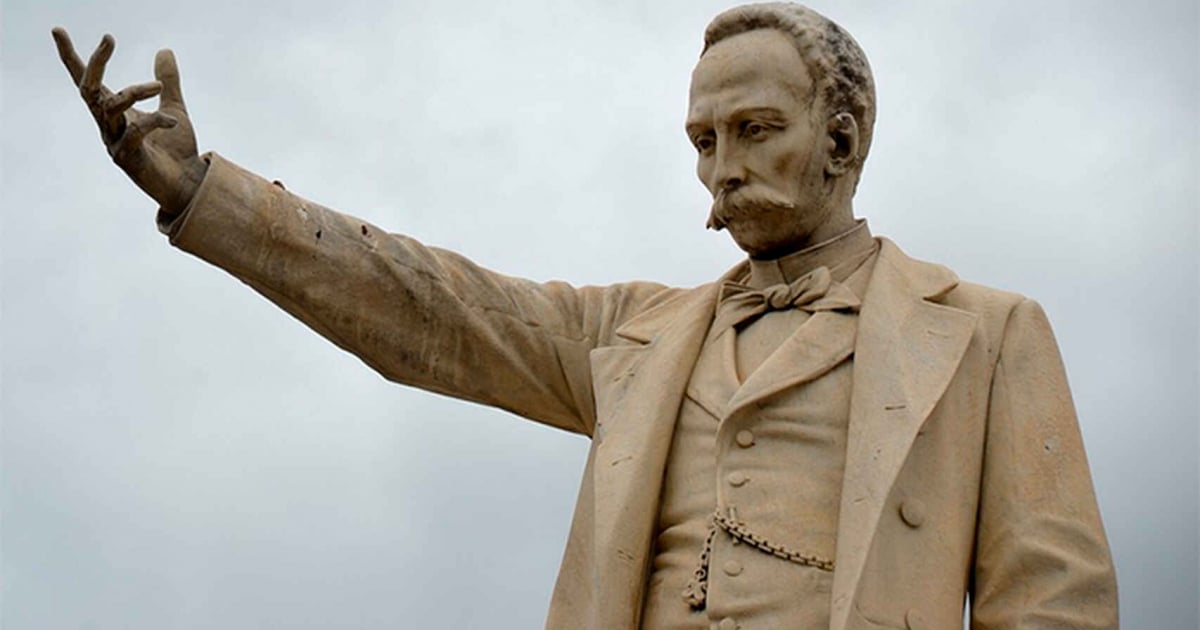
"To be cultured is the only way to be free," reads the Martí quote that appeared on Panda televisions.
The phrase is found in the prologue by Martí to the book "Cuentos de hoy y de mañana" by Rafael de Castro Palomino, dated in New York in May 1884. Specifically, in the section dedicated to the traveling teachers.
It is an extensive text in which he reflects on the importance of EDUCATION and knowledge as essential pillars for personal growth, but also on the importance of FREEDOM and the PROSPERITY of nations.
"Being good is the only way to be happy. Being cultured is the only way to be free. However, in the common nature of humanity, one needs to be prosperous to be good." This is the complete quote.
Martí explains a little before introducing the famous quote that prosperity is essential for being good, as in human nature one cannot be kind if one is not prosperous.
"Men must live in the peaceful, natural, and inevitable enjoyment of Freedom, just as they live in the enjoyment of air and light. A people is condemned to die where the affection for wealth and the understanding of the sweetness, necessity, and pleasures of life do not unfold equally."
It also emphasizes that men grow not only when they acquire material goods, but when they learn and do good for others, as those who act with generosity grow morally, while the selfish isolate themselves and grow old inside, comparing them to an "insect."
It also speaks of wealth and prosperity from a perspective that combines the moral with the material. It explains that true prosperity and wealth come from knowledge, honest work, and the cultivation of nature. For Martí, prosperity is not just a matter of accumulating goods, but of understanding and utilizing natural resources in an ethical and productive manner.
What is, for Martí, the only path to constant prosperity?
In the paragraph following the quote, it explains: to cultivate and take advantage of the inexhaustible and tireless elements of nature. It notes that nature is generous and offers unlimited opportunities by providing what is necessary for life if cultivated with wisdom and work. It states that wealth comes from the exchange of products that nature provides and that this constant exchange between regions ensures the well-being and wealth of all peoples.
"Men will always need the products of nature. And since only certain products are found in each region, their active exchange will always be maintained, ensuring comfort and wealth for all peoples."
In this way, it offers an economical solution based on the utilization of natural resources and equitable exchange between different regions.
According to him, each region of the world produces certain specific goods that are not found elsewhere, which makes the active exchange of products between nations necessary and natural. This dynamic of constant trade not only ensures access to goods that cannot be produced locally, but also secures the prosperity and comfort of all peoples.
In essence, a system of economy based on fair trade and the rational use of natural resources. For Martí, this economic exchange, rooted in the generosity of nature and honest effort, is key to both individual and collective growth and prosperity.
Freedom, education, and prosperity, the Martian principles that are not fulfilled in Cuba.
The Cuban Revolution contradicts the Martian principles of education, freedom, and prosperity.
Martí asserted that "being educated is the only way to be free," but in Cuba, education has become an instrument of ideological control instead of fostering free thought. The educational system is designed to indoctrinate, not to emancipate, keeping the population under constant manipulation.
Furthermore, Martí linked prosperity with goodness and the ethical use of resources, but the regime has criminalized personal wealth and entrepreneurship, condemning the people to perpetual economic stagnation.
Martí's dream of a free, educated, and prosperous nation has been betrayed by the policies of the Cuban government, which uses his legacy as an excuse to maintain a system that actually destroys those ideals.
The current Cuba is a reflection of that betrayal, and Cubans must recognize it to begin fighting for the true freedom and prosperity that Martí longed for.
What do you think?
COMMENTFiled under: